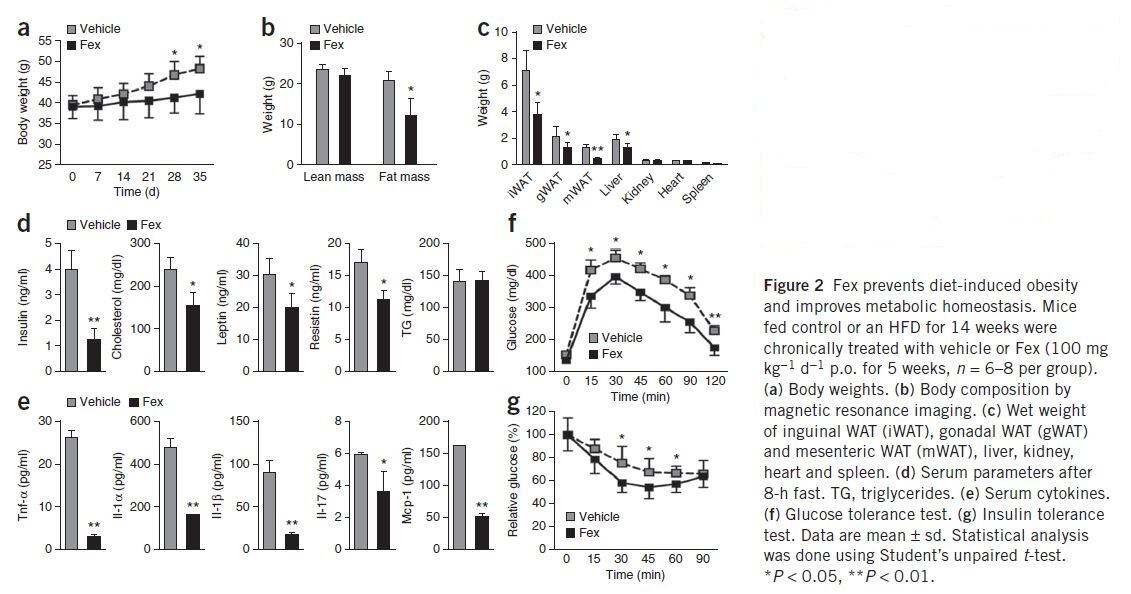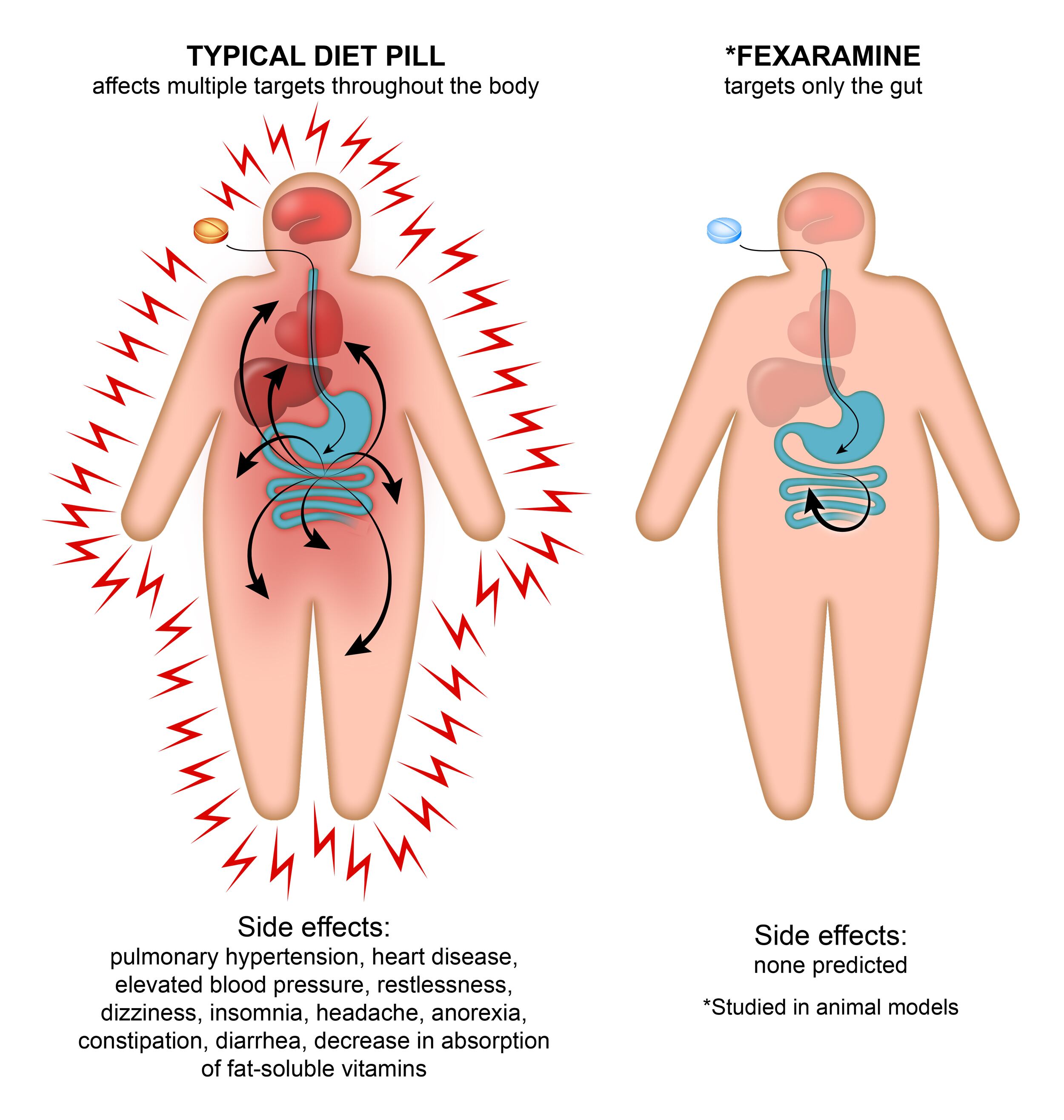The interest in this kind of research – here amplified by a claimed absence of side effects that have restricted the commercialisation and use of other obesity drugs - may be a slap in the face to nutrition and lifestyle interventions.
These have largely failed to halt the rise of overweight and obese people around the world, and the litany of chronic illnesses associated with excess weight like type-2 diabetes, inflammation and heart disease.
The research published this week in Nature Medicine showed obese, diabetic mice given a daily dose of a compound called fexaramine (fex) for five weeks stopped gaining weight, lost fat and had lower blood sugar and cholesterol levels than untreated mice. This was achieved via fexaramine’s effect on bile production and its associated effect on satiety and fat burning.

The researchers are calling it an “imaginary meal”. “It sends out the same signals that normally happen when you eat a lot of food, so the body starts clearing out space to store it. But there are no calories and no change in appetite,” said lead researcher Ronald Evans, director of the Salk Institute’s Gene Expression Laboratory.
Fellow Salk researcher Michael Downes got in touch and said, "We hope to develop a pill for fexaramine within 24 to 36 months to try in humans."
“Powerful tool”
Commenting on the study to NutraIngredients, professor Jason Halford, head of Psychological Sciences at the University of Liverpool and coordinator of the European Union-funded Satiety Innovation (SATIN) project, said fexaramine could be a “powerful tool” in the battle against obesity.
“Current drugs are producing 5-10% weight loss (compared to bariatric surgery which is 15-20% at least) so to be a game changer I think it would have to be marked improvement on that (i.e. >10%),” said professor Halford.
“But even if not combined with another effective mono-therapy it could become a very powerful tool.”

Localised
The research showed oral ingestion of the substance localised effects in the gut as the substance did not pass beyond the gastrointestinal system into the bloodstream. The researchers suggested the treatment could offer an alternative to gastric surgery in chronically obese people.
“From what I can see it is a very novel approach in that they are triggering in the gut a physiological response which increases energy expenditure and over time inhibits weight gain,” said professor Halford.
“That is a rather neat non-systemic approach. There are questions about the impact of such an approach on behaviour and whether the mice show any compensatory increase in food intake.
"I can see it deals with the consequences of over-consumption and positive energy balance but is does not seem to do much to address the reasons why people become obese or have difficulties losing weight.”
See a video from the Salk Institute about the research here:
Professor Halford noted many obesity-related studies had never made it to human trials, or failed at that level, but the researchers here may be encouraged by the lack of side effects.
There are few drugs marketed on their weight loss potential in the EU or elsewhere due. The most common is orlistat which goes by various brand names. Others have been removed from market over side effects.
“This is animal data and there must be thousands of publications demonstrating various agents inhibit weight gain in rodents but very few of these have proved to be practical approaches to weight management,” observed professor Halford.
The researchers concluded that, “The beneficial whole-body efficacy achieved with Fex suggests intestinal FXR therapy as a promising and potentially safer approach to systemic FXR agonism in the treatment of insulin resistance and metabolic syndrome.”
Source:
Nature Medicine
Published online January 5 2015 (doi:10.1038/nm.3760)
‘Intestinal FXR agonism promotes adipose tissue browning and reduces obesity and insulin resistance’
Authors: R. Evans et al.
